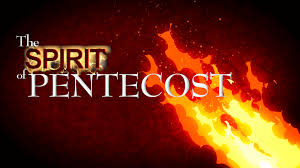“And it came to pass, while he blessed them, he was parted from them, and carried up into heaven.” Luke 24:51 (KJV)
We spend a lot of time talking about the incarnation of Christ, the crucifixion and the resurrection but often neglect the ascension, a key element in the ministry and work of Christ. If we stop at the resurrection event, we miss the full power of God. This power that raised Jesus from the grave also lifted Him to heaven. The ascension completes the ministry of Christ as affirmed in our Statement of Faith: “We believe in Jesus Christ…crucified, dead, and buried; the third day He arose from the dead; He ascended in heaven and is seated at the right hand of God, the Father Almighty.” This statement successfully captures the full efficacy of Jesus’ ministry.
Christ’s ascension is a defining moment in Christianity much like His Advent. While the ascension marked the conclusion of Christ’s ministry on earth, it also initiated three (3) key changes for all who would follow Him as Lord and Savior. The Ascension would result in:
#1. The Holy Spirit’s ENTRANCE. Jesus had earlier reminded the Disciples that His departure was necessary in order that the Holy Spirit would come. This transference of power to the Disciples would occur through the baptism of the Holy Spirit (Acts 1:8) resulting in “even greater works” than had been accomplished by Jesus (John 14:12). The Holy Spirit’s arrival would also result in the “gifting” of individuals for the edification of the Church (Ep. 4:8). Lastly, the Holy Spirit would bring to remembrance the truths that Jesus had taught the disciples during His time with them. He would add clarity and understanding to many of Christ’s teachings that would later be included in the infallible record of the Gospels.
#2. The Disciples’ ENGAGEMENT. The forty days prior to Jesus’ ascension provided a critical transition period in which Jesus could prepare the Disciples for their new commission. During that time Jesus answered their questions, banished their fears, and opened their minds to the Scriptures (Luke 24:44-48). The ascension marked the beginning of the Disciples apostolic calling. After receipt of the Holy Spirit, they would be empowered to be the primary propagators of the Gospel beginning in Jerusalem and then expanding to Judea and Samaria and finally to the uttermost part of the earth (Acts 1:8).
#3. Jesus Christ’s EXALTATION. After the ascension, Jesus Christ was placed on the throne at the right hand of God the Father. Jesus’ position of honor signified the acceptance of His “once for all” sacrifice for sin (Heb. 10:12) and His triumph over the forces of evil and Satan (Heb.2:14). Jesus has ascended to heaven where He now reigns as Lord and King (Rev. 19:16). It is there that He: (1) governs the universe, (2) rules the Church, (3) gives aid to believers, and (4) intercedes for believers. The ascended Christ is “far above all rule and authority and power and dominion and above every name that named” (Ep. 1:21). In 2015 Jesus Christ reigns!
And what does all this business of ascension have to do with believers living in the 21st century? Everything! Although Christ’s entered through the filter of time, the impact of His life and ministry extends throughout eternity. Christ’s life, death, resurrection and ascension provide the foundation on which believers appropriate God’s grace—His mercy and His power. Our response is seen in a life style that reflects our Lord and King.
The Holy Spirit’s entrance provides believers with a litany of gifts and powers to successfully navigate in a chaotic and tumultuous world—much like that which the Disciples faced. He is there to provide guidance and direction to accomplish the purpose for which God has created us. The Holy Spirit is the source of truth in all things protecting us from the world’s deception and Satan’s lies (John 16:13).
The Disciples engagement is the same for believers today. Our commission is to spread the Good News of Jesus Christ within our sphere of influence. We too have received the call to faithfully evangelize whenever possible. We can begin our commission by witnessing to what we personally have seen Christ do in our lives and his love for others—love that was demonstrated by His death, resurrection, and ascension (Rom. 5:8). Through the power and presence of the Holy Spirit, we too can turn the world upside down (Acts 17:6).
The knowledge of Christ’s exaltation is the place where believers can respond with great joy and confidence. Christ seated in heavenly places (Eph. 1:20) reigning as Lord and triumphant King of the universe. It is because of this fact that we can be assured that the world is not spinning out of control because He is sovereignly overseeing current history and our destiny (Ps. 103:19). In addition, Jesus love and benevolence doesn’t end with His ascent into heaven for it is there that He acts as our High Priest continually making intercession before the Father on our behalf (Rom. 8:34; Heb. 7:25).
Jesus ascended “materialistically, physically, and bodily” into heaven. This is no fable or folklore; neither is this an illusion or the result of some mass hysteria. It happened then and Jesus will “return in like manner” (Act 1:11). Christ is ascended. And what should our response be? Like the Disciples let us worship and praise Him (Luke 24:52).
Crown Him with many crowns
The Lamb upon His throne
Hark! How the heavenly anthem drowns
All music but its own
Awake my soul and sing
Of Him who died for thee
And hail Him as the matchless King
Through all eternity.

